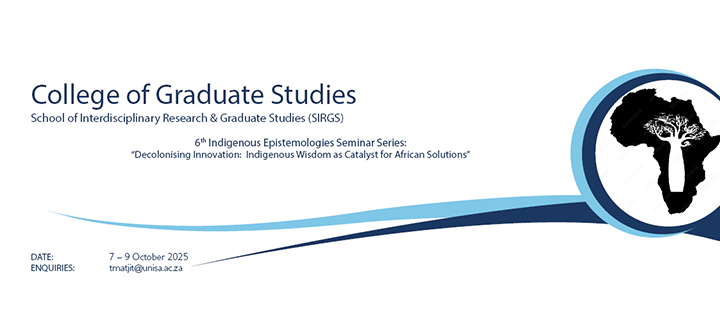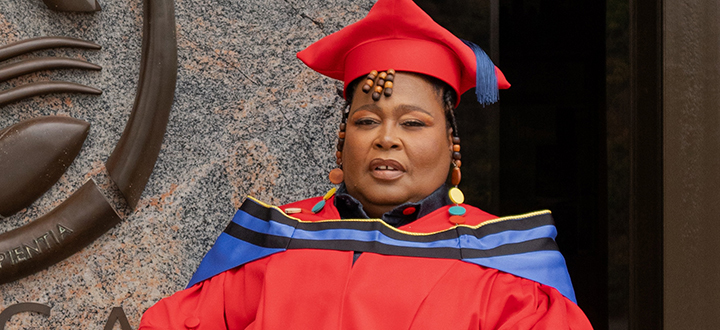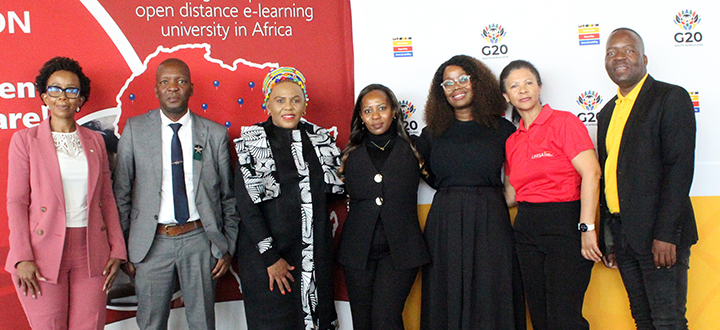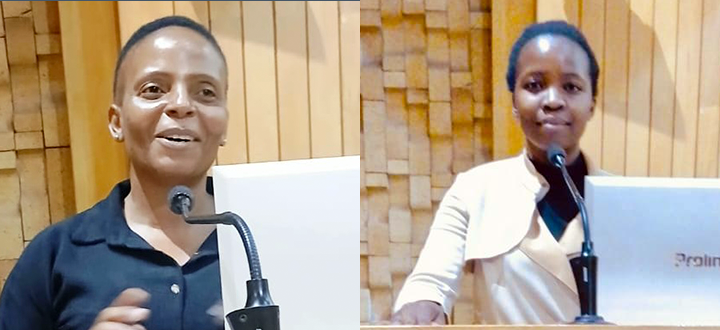News & Media
Unisa students shine at first BICTaD Conference

From left: Sharon Maponya and Makodi Masipa
Communication Students Association (COMSA) members Sharon Maponya and Makodi Masipa recently presented their papers at the first Bi-Annual International Conference on Telecommunications and Digitality (BICTaD) hosted by the Unisa Department of Communication Science under the theme “Inclusive communication futures: Socio-economics, cultures and technologies in the changing global landscape”.
The conference took place at Unisa’s Miriam Makeba Hall from 20 to 23 October 2025 and attracted academics, researchers, students, and innovators from South African universities and across the continent.
Maponya, who holds a BA in Communication Science and is currently pursuing her honours in Integrated Organisational Communication, presented her paper titled “Emotional Attachment to Artificial Intelligence: Shaping Inclusive Media and Responsible Digital Citizenship”, while Masipa, a Diploma in Sport Management and Public Relations graduate, explored “How media law shapes responsible journalism in a democratic society, with a particular focus on South Africa”.
In her presentation, Maponya (COMSA Chairperson) examined the growing emotional relationships between humans and artificial intelligence (AI) systems such as chatbots and digital assistants. She discussed how these interactions influence inclusivity, ethics, and responsible behaviour in digital environments.
“Technology should mirror our best values, not our emotional weaknesses,” she said, highlighting the need for empathy and ethical considerations in AI design and application. She emphasised the importance of African perspectives in shaping global AI discourse, arguing that scholars from the continent should contribute to the development of emotionally intelligent and culturally aware technologies.
Masipa (COMSA Secretary-General) analysed the balance between invasion of privacy and defamation, focusing on freedom of expression, press freedom, digital innovation, and reputation. She highlighted the evolution of journalism in the digital media era, emphasising the importance of ethical reporting and how innovative democratic tools, such as online civic platforms, are transforming citizen participation and accountability. She said that she was motivated by seeing how media innovations in democracy enable people to communicate directly with leaders, bypassing traditional processes. “We now have municipal portals and government social media platforms where citizens can submit queries directly,” she said. “I was also inspired by media law itself. Through my research, I realised that many journalists are often careless due to the fast pace of platforms like X, which has led to numerous defamation cases. Journalists sometimes publish without fully understanding the law.”
The conference was merged with the Percy Qoboza Memorial Lecture, where Sharon Maponya was amongst the group of students to whom bursaries were awarded. “Beyond just providing financial aid, the Percy Qoboza Bursary honours leadership and intellectual ability. It has inspired me to keep doing research that contributes to the global conversation on media and technology by elevating African perspectives,” she said.
Both presenters acknowledged COMSA for its role in strengthening their academic and leadership journeys, as it provided them with opportunities to connect theory with practice. “COMSA prepared me to present at major academic events such as BICTaD,” Maponya said. “I believe that being a member of COMSA and volunteering for UNISA Radio definitely opened the door to BICTaD.
“These experiences provided me with practical skills, exposure and opportunities to engage with diverse audiences,” Masipa said.
Maponya and Masipa are eager to participate in the next BICTaD conference, scheduled for 2027, as part of their commitment to learning, networking, and sharing research. The BICTaD 2025 conference focused on the intersection of technology, communication, and development, providing a platform for emerging researchers and scholars to address social and ethical issues in the communication sector.
* By Collen Khorommbi, Department of Communication Science
Publish date: 2025-11-17 00:00:00.0


 Decolonising innovation: indigenous wisdom as a catalyst for African solutions
Decolonising innovation: indigenous wisdom as a catalyst for African solutions
 Unisa PhD graduate rises with dignity, and proudly lives with equity
Unisa PhD graduate rises with dignity, and proudly lives with equity
 Unisa co-hosts Rustenburg G20 engagement
Unisa co-hosts Rustenburg G20 engagement
 Unisa academic's research finds healthcare solutions in digital transformation
Unisa academic's research finds healthcare solutions in digital transformation
 Unisa students shine at first BICTaD Conference
Unisa students shine at first BICTaD Conference